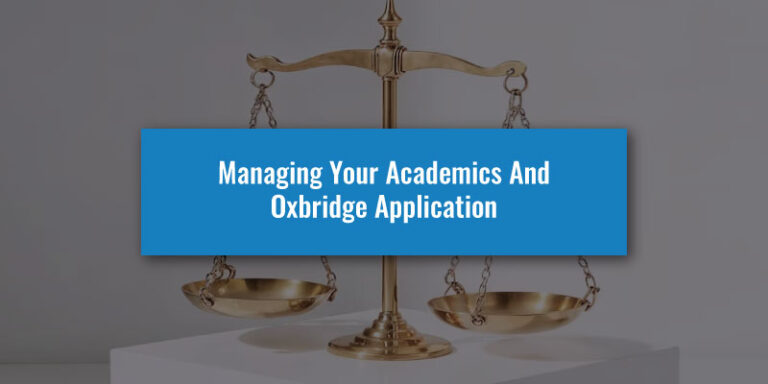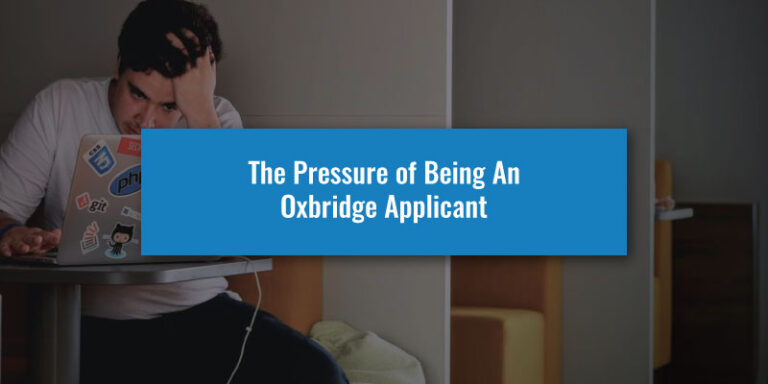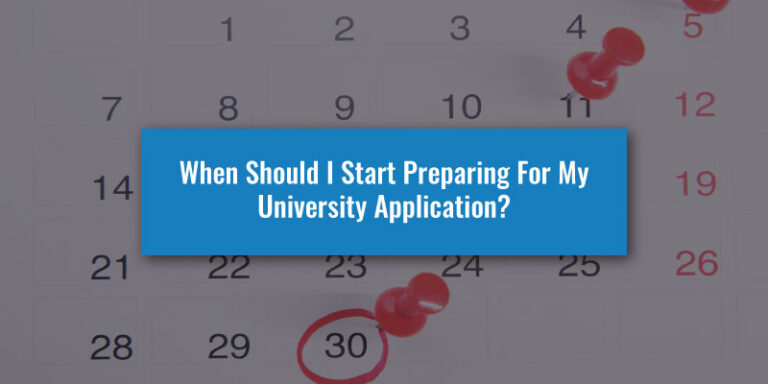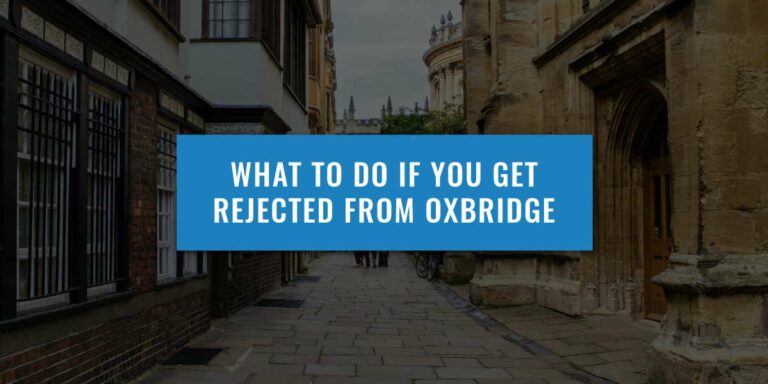Interviews are the final step used by Oxford and Cambridge in choosing applicants, knowing what they are looking for will help to achieve a successful Interview.
The main reason that Oxbridge ask you to attend a Law Interview is to assess your academic potential. Having an idea of what to expect on the day can certainly help you feel more confident and perform your best. Read on to find out what Oxbridge Law Admissions Tutors are really looking for.
What to expect at an Oxbridge Law Interview
Applying for Oxbridge is extremely competitive and being invited to an Interview is a huge achievement itself. Only 13% of Oxford and 16% of Cambridge applicants achieve a place to study Law so use the Interview to make an impression.
Cambridge tends to Interview around 75% of applicants, so it is very likely you will be Interviewed if you meet the entry requirements. If you begin preparing when you get your Interview invitation – it’ll likely be too late!
Before the Interview, you may be asked to read through some material which you will then be asked questions about through different scenarios, to show your reasoning and understanding.
It is important to do thorough research about the Oxbridge course content. The last thing you want is to talk about an area of Law that your chosen university doesn’t cover.
Be prepared for your Law interview with expert support from UniAdmissions
With our Oxbridge Law Interview Programme we effectively prepare you through One-To-One Tuition, Intensive Courses, Comprehensive Materials and Enrichment Supervisions to give you the best chances of Oxbridge success.
Discover our Oxbridge Law Interview Programme by clicking the button below to enrol and triple your chances of success.
What Are Oxbridge Law Admissions Tutors Looking For?
The Oxbridge Law Admissions Tutors understand that you might not have studied Law before, so they will not expect you to know in depth knowledge on the subject. They want to test your ability to think critically and logically.
Admissions Tutors will not be looking for perfect answers, they want to know if you are capable of reasoning and that you can see both sides of the argument and remain open-minded.
The key points that will stand out to an Oxbridge Law Admissions Tutor are your academics, thought process, self-motivation, critical thinking, and enthusiasm for your course. It is important you show knowledge of wider reading and activities that demonstrate your passion for Law.
The Oxbridge Admissions Tutors will be paying close attention to how well you are able to express your opinions and how you present your knowledge, which will heavily rely on your communication skills.
What Questions Are The Law Admissions Tutors Asking?
The Interview will usually consist of one main question which will include sub-questions that will help guide the student to a final answer. The questions often have a theme which reflect jurisprudential thinking, which is essentially looking carefully at words and drawing fine distinctions, building up an argument and applying that to examples.
There are five main question types that highlight the skills necessary to ‘think like a lawyer’:
- Observation-based questions (“tell me about…”)
- Practical questions (“how would you decide if…”)
- Statistical questions (“given this data…”)
- Ethical questions (“are humans obligated to…”)
- Questions about proximate causes (mechanism, ”how does…”) and ultimate causes (functions, “why does…”), usually both at once.
It is important that when you are stuck on a question, you think out loud about your answer. When an Oxbridge Admissions Tutor asks you a question, they are mostly interested to see how you link your thoughts logically and how you come up with your conclusion, so make sure not to stay quiet while you’re thinking!
One thing to remember before you get started is that you are also interviewing them, so make sure you have some questions ready to find out if this is the right place for you.
Oxbridge Worked Question Example
Knowing what questions you may be asked is one thing, being able to answer them is another.
The answers are not to be over complicated, the Admissions Tutors just want to see you demonstrate logical and critical thinking.
They might even be just wanting you to show you have done your wider read and research into the course. This will show your dedication and commitment, and make you stand out as an ideal candidate.
An example of such a question would be:
“What is the relevance of Roman Law to your course?”
This question is a good opportunity to show the Admissions Tutor that you have done detailed research on the Oxbridge Law degrees. You can demonstrate that you understand the reason why Roman Law is a mandatory first-year module and differentiate yourself from other candidates. It helps show to the Admissions Tutor your genuine interest in the Oxbridge Law degree.
However, do make sure to answer the question at hand and not “why is Roman Law studied at Oxford/Cambridge” which would elicit a different response. The question here is specifically asking about the relevance of Roman law to the modern study of law.
This does require a little bit of research and the Cambridge law faculty website is the best place to start for this. There is a very short video by Ms Amy Goymour on the nature of the subject and the reasons behind its compulsory status.
A good applicant would have watched that video but also provide some original insight into the answer and not just paraphrased the video. It would also be good to include a brief example as it shows the logical pattern of your thoughts.
A sample answer is as follows:
“Roman law is relevant to the modern study of law because it provided solutions to many complex factual problems which also arise today. There are also many examples of traces of Roman Law in English Law. For example, prescription by long use was a concept which originated from the Roman system. We can see how our modern study and system of Law has built on these ancient solutions and this gives us a better and deeper understanding of our modern Laws.”
An answer, demonstrating what the Admissions Tutors are looking for could also include an example: “One example would be where A owns a chariot, but this was stolen by thief who then sold it to an innocent party B. A finds the chariot and wants it back but B alleges that it is his since he purchased it in good faith and paid money for it. The Romans position on this issue influenced and is very similar to the English position which is that the law generally allows the original owner to retrieve their item except in certain exceptional circumstances.”
An applicant who does not know what the Admissions Tutors are looking for might go off tangent, and start talking about why Roman Law is a mandatory subject at Oxbridge without addressing the focus of the question which is the relevance. They might also try and dispute this question and say that Roman Law is not relevant which is again, not what the question is asking for. The question did not ask you to debate or discuss the relevance but rather wants you to address how learning Roman Law can be useful when learning the modern systems of Law.
This is only one example of the types of questions that could be asked, so make sure you familiarise yourself with various topics to best show the Admissions Tutors that you are suited for the course.
It is important for the answers to flow naturally and not sound like all your responses have been rehearsed. So have points you wish to mention but do not end up sounding robotic.
Differences between Oxford and Cambridge Law Interviews
Oxford:
- You will often be given an example of a previous legal case and/or short extracts from a law, with legal jargon being defined for them. In some Interviews, you will not be provided with a case, an the Oxford Admissions Tutors will ask you questions that you will be required to answer on the spot.
- Your Interview invitation will usually come from the college you applied to, however sometimes you might be invited to Interview at a different college. This is a part of Oxford’s reallocation process and its purpose is for every student to have a similar chance of getting an offer.
Cambridge:
- You may be asked to submit a school/college essay as an example of written work before the Interview.
- You will typically have two Interviews. Each Interview lasts for 20-25 minutes, though some may be longer.
Summary
In your Interview, the Admissions Tutors are wanting you to show readiness and eagerness towards the course.
They want to see you have the capabilities, to do well and are prepared to put the work in. They do not expect you to sit the Interview as a Law expert, they just want to see there is the potential there and that you would thrive in the Oxbridge environment.
Your academics are important, they are something the Admissions Tutors will be looking closely at. Your ability to think is what they really want to know.
Ultimately, you need to be passionate about Law and wanting to study it. That is why you are at the Interview so show that off to them. It could be the difference between being accepted or not.
We can help you unlock the knowledge the Oxbridge Law Admissions Tutors are looking for in your Interview.
With our Oxbridge Law Interview Programme we effectively prepare you through One-To-One Tuition, Intensive Courses, Comprehensive Materials and Enrichment Supervisions to give you the best chances of Oxbridge success.
Discover our Oxbridge Law Interview Programme by clicking the button below to enrol and triple your chances of success.







